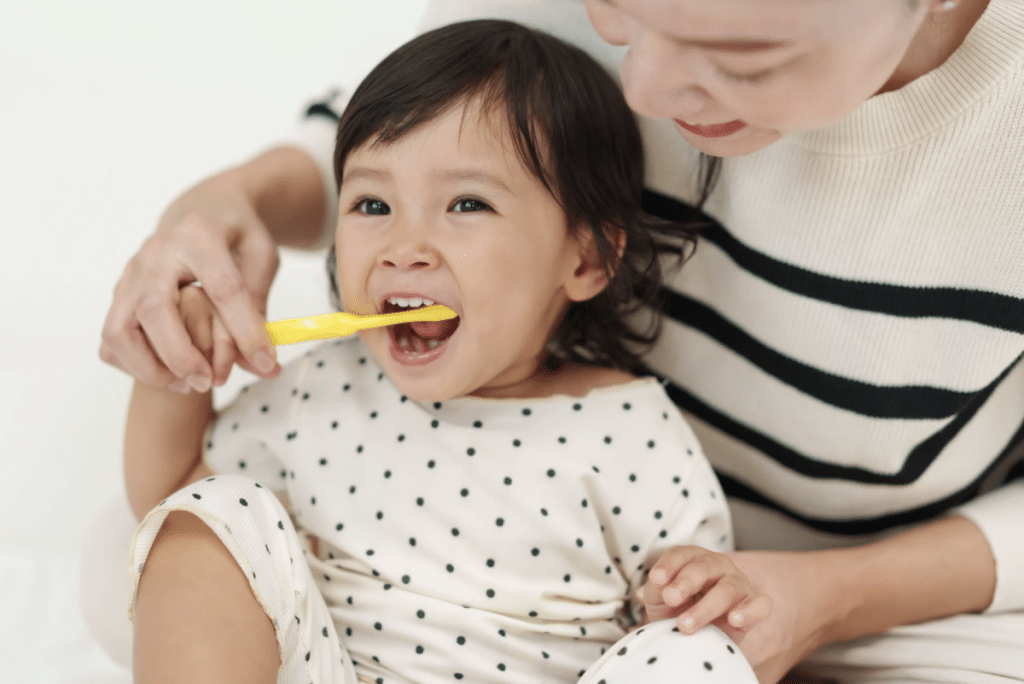There are so many big milestones when it comes to your baby. Their earliest months and years are filled with new firsts and discoveries, as well as important growing milestones. One big milestone is the moment when the first baby teeth break free of the gum line. Before you know it, your once-toothless baby will have its first set of around 20 teeth — usually by the age of 3. Baby teeth play an important role in the development of your child. While they do fall out in time, it is important to still care for them, keeping them as healthy as possible until they are ready to fall out.
Why Care for Baby Teeth?
Yes, they will fall out in time, but the role they play is important. Baby teeth play a crucial role in the early development of your child. The baby teeth, aka the primary or deciduous teeth, help contribute to facial development. They also impact your child’s ability to bite, chew, and even speak. The baby teeth are also important because they hold the space that the permanent teeth will need. Baby teeth may not be permanent, but they should still be properly cared for. Improper care could lead to decay, so it is important to avoid sugary or acidic liquids, especially before bed.
How Do I Care for Baby Teeth?
Baby teeth can be cared for in essentially the same way you would care for permanent teeth. As previously mentioned, avoiding overly sugary drinks and foods can help minimize the risk of decay. Caring for baby teeth also enforces the proper routines for caring about permanent teeth. Proper tooth care can begin as early as infancy. Even before the baby teeth appear, a great habit to get into is cleaning the gums with a soft, damp cloth after every meal.
Once your child has developed their baby teeth, you can help your toddler brush their teeth twice a day. You’ll want to find a toothbrush that has a soft brush, a small head, and a large handle. Early on, you can start by just wetting the toothbrush. As more teeth arrive, you can move to a grain of toothpaste.
Once your child hits the age of 3, you’ll move up to a pea-sized amount of toothpaste. There are tons of amazing, flavored kinds of toothpaste tailored specifically for children to make this event more enjoyable for them. You’ll want to keep an eye out for the ADA seal of approval. Also, you’ll want to check the instructions to make sure the toothpaste you’re utilizing is safe for the age of your child. This will establish a normal routine of proper care that can be carried through their entire lives.
Once your child has at least two teeth that touch, you can introduce the benefits of flossing. It is also important to maintain regular dental appointments. This helps twofold, in that it establishes proper care, which can help prevent any issues that may be lurking down the road. It also helps to establish a relationship with your dentist, so that your child doesn’t feel the need to fear the unknown.

It Starts With You
Baby teeth may not be permanent, but they are important. They help your child’s development and impact their ability to bite, chew, and even how their speech develops. Starting with baby teeth, you can establish a healthy routine that will carry through their whole lives. Caring for baby teeth can also help to avoid any major issues that could develop as the permanent teeth start to push through.

